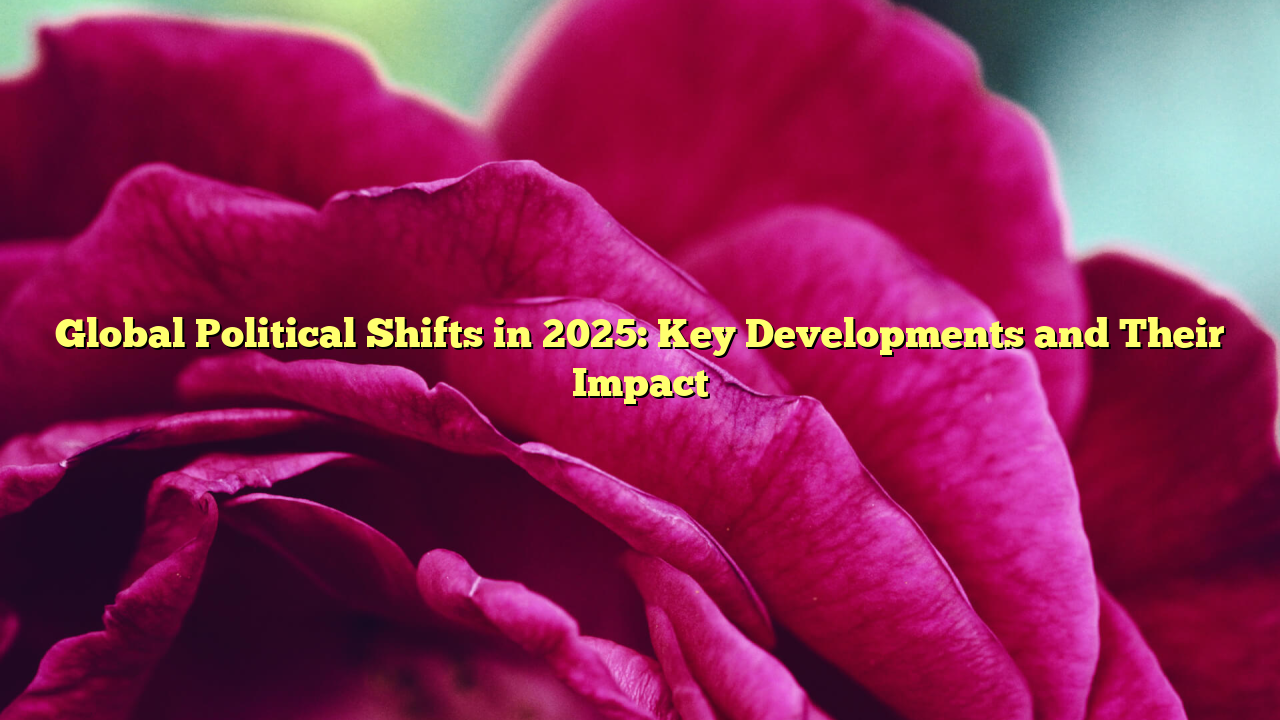Politics in 2025 is more complex than ever, shaped by ongoing conflicts, economic struggles, and shifting alliances. As major elections take place and global tensions rise, world leaders are making crucial decisions that will impact international relations, trade, and security. This article examines some of the most pressing political issues of the year, from elections in key nations to global diplomacy and economic policies.
The U.S. Presidential Election: A Pivotal Moment
The United States is at the center of global political attention as it prepares for its 2025 presidential election. With economic recovery, social policies, and foreign affairs dominating the debates, both major political parties are working to secure votes.
The Democratic Party is focused on continuing its policies regarding climate change, healthcare, and international cooperation. On the other hand, the Republican Party is advocating for tax cuts, stricter immigration policies, and national security. Independent and third-party candidates are also gaining attention, reflecting public dissatisfaction with traditional politics.
The outcome of this election will have far-reaching consequences, influencing trade agreements, military alliances, and the global economy. Many countries are watching closely, as U.S. foreign policy decisions will shape the direction of international relations for years to come.
Europe’s Struggles with Political Division
Europe is experiencing significant political shifts, with nationalist movements gaining strength in several countries. The European Union (EU) is facing internal challenges as debates over immigration, economic policies, and security create divisions among member states.
In France, political tensions are high as citizens debate the country’s role in the EU and its approach to domestic policies. Meanwhile, Germany is adjusting to new leadership, with economic stability and military cooperation taking center stage. The United Kingdom, still dealing with the long-term effects of Brexit, is focused on trade negotiations and economic recovery.
The war in Ukraine remains a major issue, with European nations providing continued support while also seeking diplomatic solutions to the crisis. Military spending has increased across the continent, reflecting concerns over security and geopolitical threats.
The U.S.-China Rivalry: Trade, Technology, and Military Tensions
The relationship between the United States and China remains one of the most significant political issues in 2025. Trade restrictions, cybersecurity concerns, and military competition in the Indo-Pacific region continue to strain diplomatic efforts.
China has expanded its influence through economic investments in Africa, Latin America, and Asia, strengthening its global partnerships. Meanwhile, the U.S. is working with allies to counter China’s growing power, leading to increased military presence in strategic locations. The situation in Taiwan remains a major flashpoint, with both nations taking a firm stance on the issue.
Despite tensions, both countries recognize the need for cooperation in areas such as climate change and global health initiatives. However, the rivalry between the two superpowers is expected to remain a defining factor in international politics.
The Middle East: A Region in Transition
The Middle East continues to experience political instability, with conflicts, diplomatic agreements, and economic reforms shaping the region. Iran’s nuclear program remains a source of international concern, with ongoing negotiations attempting to prevent further escalation.
Saudi Arabia and the UAE are focusing on diversifying their economies, investing in technology, renewable energy, and tourism. Meanwhile, Israel is strengthening its diplomatic ties with neighboring countries, though tensions with Palestine persist.
Conflicts in Syria and Yemen are ongoing, with international efforts being made to achieve peace agreements. The political landscape of the Middle East is evolving, and the balance of power in the region remains uncertain.
Climate Policy and Global Cooperation
Climate change continues to be a major issue in global politics, with nations facing increasing pressure to implement policies that reduce carbon emissions and promote sustainability. International climate summits have led to agreements on renewable energy and environmental protection, but divisions remain between developed and developing nations.
Many countries are investing in green technology, such as electric vehicles and solar energy, while others continue to rely on fossil fuels for economic growth. The debate over climate funding for poorer nations is ongoing, as they seek financial support to transition to sustainable energy sources.
Governments and private industries are working together to develop innovative solutions, but balancing economic growth with environmental responsibility remains a challenge.
Conclusion
The world of politics in 2025 is defined by uncertainty and rapid change. From the U.S. presidential election to rising nationalism in Europe, the U.S.-China rivalry, and Middle Eastern conflicts, global leaders are making crucial decisions that will shape the future.
As link ketuaslot shift, diplomacy, cooperation, and strategic policymaking will be essential in maintaining stability and addressing global challenges. The coming months will reveal how these political developments unfold and what they mean for the future of international relations.
The Shifting Landscape of Global Politics in 2025



